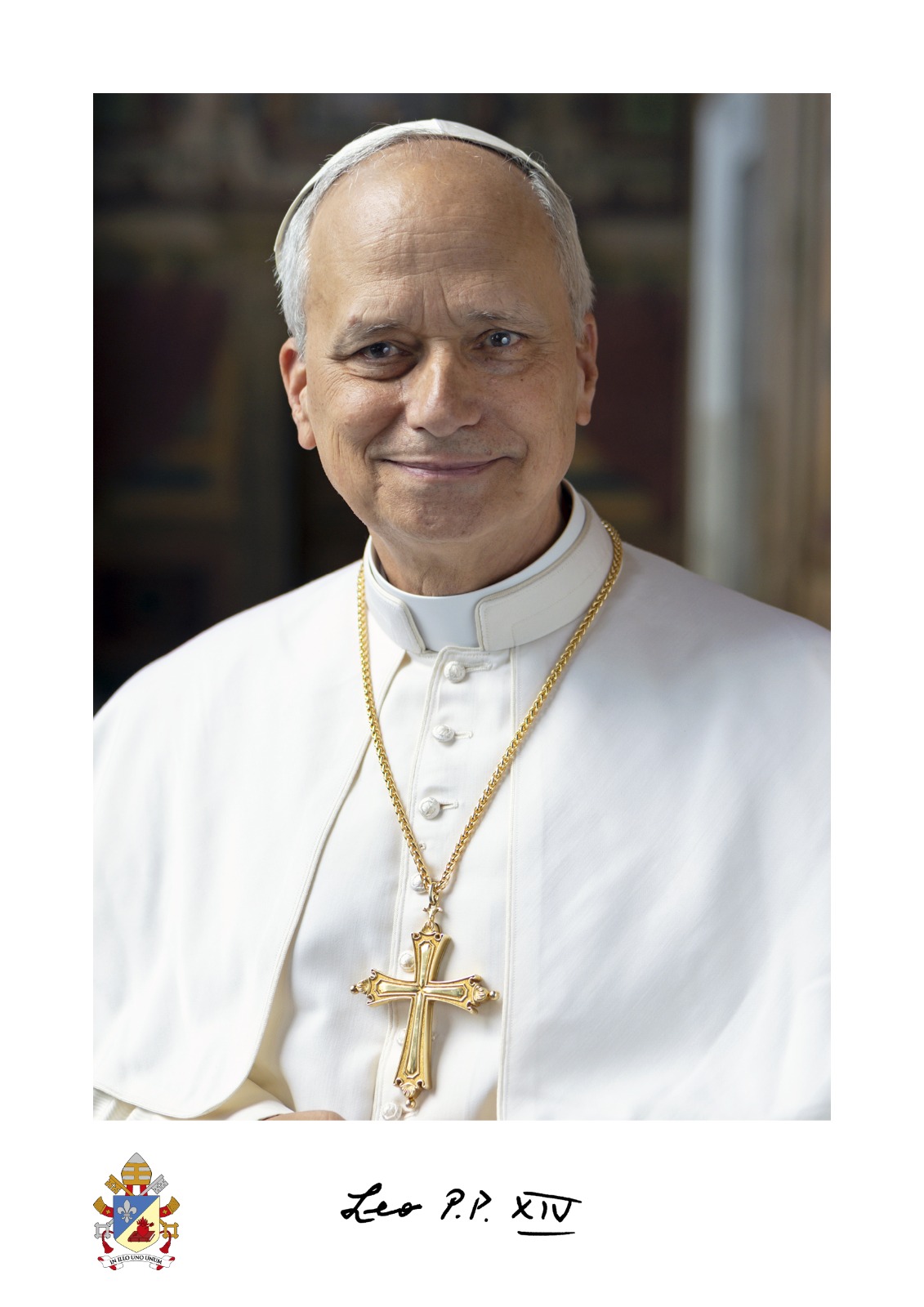POPE LEO XIV
The first Augustinian Pope, Leo XIV is the second Roman Pontiff - after Pope Francis - from the Americas. Unlike Jorge Mario Bergoglio, however, the 69-year-old Robert Francis Prevost is from the northern part of the continent, though he spent many years as a missionary in Peru before being elected head of the Augustinians for two consecutive terms.
The new Bishop of Rome was born on September 14, 1955, in Chicago, Illinois, to Louis Marius Prevost, of French and Italian descent, and Mildred Martínez, of Spanish descent. He has two brothers, Louis Martín and John Joseph.
He spent his childhood and adolescence with his family and studied first at the Minor Seminary of the Augustinian Fathers and then at Villanova University in Pennsylvania, where in 1977 he earned a Degree in Mathematics and also studied Philosophy.
In Rome, he was ordained a priest on June 19, 1982, at the Augustinian College of Saint Monica by Archbishop Jean Jadot, then pro-president of the Secretariat for Non-Christians, which later became the Pontifical Council for Interreligious Dialogue and then the Dicastery for Interreligious Dialogue.
Prevost obtained his licentiate in 1984 and the following year, while preparing his doctoral thesis, was sent to the Augustinian mission in Chulucanas, Piura, Peru (1985–1986). In 1987, he defended his doctoral thesis on "The Role of the Local Prior in the Order of Saint Augustine" and was appointed vocation director and missions director of the Augustinian Province of “Mother of Good Counsel” in Olympia Fields, Illinois (USA).
In 1999, he was elected Provincial Prior of the Augustinian Province of “Mother of Good Counsel” in Chicago, and two and a half years later, the ordinary General Chapter of the Order of Saint Augustine, elected him as Prior General, confirming him in 2007 for a second term.
In October 2013, he returned to his Augustinian Province in Chicago, serving as director of formation at the Saint Augustine Convent, first councilor, and provincial vicar—roles he held until Pope Francis appointed him on November 3, 2014, as Apostolic Administrator of the Peruvian Diocese of Chiclayo, elevating him to the episcopal dignity as Titular Bishop of Sufar.
He entered the Diocese on November 7, in the presence of Apostolic Nuncio James Patrick Green, who ordained him Bishop just over a month later, on December 12, the Feast of Our Lady of Guadalupe, in the Cathedral of Saint Mary.
His episcopal motto is “In Illo uno unum”—words pronounced by Saint Augustine in a sermon on Psalm 127 to explain that “although we Christians are many, in the one Christ we are one.”
On September 26, 2015, he was appointed Bishop of Chiclayo by Pope Francis. In March 2018, he was elected second vice-president of the Peruvian Episcopal Conference, where he also served as a member of the Economic Council and president of the Commission for Culture and Education.
In 2019, Pope Francis appointed him a member of the Congregation for the Clergy (July 13, 2019), and in 2020, a member of the Congregation for Bishops (November 21). Meanwhile, on April 15, 2020, he was also appointed Apostolic Administrator of the Peruvian Diocese of Callao.
On January 30, 2023, the Pope called him to Rome as Prefect of the Dicastery for Bishops and President of the Pontifical Commission for Latin America, promoting him to the rank of Archbishop. Pope Francis created him Cardinal in the Consistory of September 30, 2023, and assigned him the Diaconate of Saint Monica. He officially took possession of his titular church on January 28, 2024.
As head of the Dicastery, he participated in the Pope’s most recent Apostolic Journeys and in both the first and second sessions of the 16th Ordinary General Assembly of the Synod of Bishops on synodality, held in Rome from October 4 to 29, 2023, and from October 2 to 27, 2024, respectively.
Meanwhile, on October 4, 2023, Pope Francis appointed him as a member of the Dicasteries for Evangelization (Section for First Evangelization and New Particular Churches), for the Doctrine of the Faith, for the Eastern Churches, for the Clergy, for Institutes of Consecrated Life and Societies of Apostolic Life, for Culture and Education, for Legislative Texts, and of the Pontifical Commission for the Vatican City State.
Finally, on February 6 2025, the Argentine Pope promoted him to the Order of Bishops, granting him the title of the Suburbicarian Church of Albano. He was elected Supreme Pontiff of the Catholic Church on 8th May 2025. He chose the name Leo XIV after Leo XIII. He took canonical possession of the new office on 18th May 2025.
VIVA IL PAPA!
Websites:
Holy See - www.vatican.va
Vatican News - www.vaticannews.va

